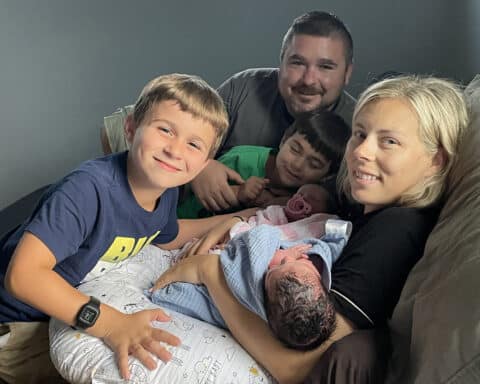Hard cases make bad law, as the saying goes. Alabama has demonstrated that hard cases combined with hasty legislation make shocking and dreadful law. On March 6, Governor Kay Ivey signed into law Senate Bill 159. The bill is an ostensible remedy to the Alabama Supreme Court’s recent ruling that frozen embryos created in the process of in vitro fertilization are children under the State’s Wrongful Death of a Minor Act. As such, the court explained, parents of frozen embryos could bring an action for negligence against a clinic when frozen embryos were accidentally destroyed.
The court’s decision was met with broad, bipartisan derision, leading the Alabama legislature hastily to cobble together a legislative reversal, SB 159. The legislature’s intent is twofold. First, it protects clinics from potential criminal liability for destroying embryos in the normal course of the IVF process. Alabama’s IVF clinics had suspended operations for fear that they might not face such charges. Second, SB 159 protects clients of IVF for authorizing the destruction of embryos, which IVF contracts routinely do.
This law will be modified within months
In signing the bill, Alabama Governor Kay Ivey said, “There will be more work to come.” Still, she — and the legislature — want to “provide assurances” for clinics so that IVF treatments could “resume services immediately.” The “more work” may come sooner than the Governor anticipates. This is because SB 159 is not merely a bad law. It is a stupefyingly awful law. It is a mystifyingly horrible law on a level that one seldom sees. It is such an irredeemably flawed law that I predict it will be modified within months, if not weeks.
The relevant text of SB 159 is very short: “No action, suit, or criminal prosecution for the damage to or death of an embryo shall be brought or maintained against any individual or entity when providing or receiving services related to in vitro fertilization.” As noted above, it is designed to protect both the clinic and the client from liability under the Wrongful Death of a Minor Act. The problem with the bill — the glaringly obvious problem — is that it does much more than that. As it stands, the law provides immunity for any action in contract, crime, or tort that might cause damage or death to an embryo without any qualification or nuance.
Couples will lose their children
For example, let’s say Joe and Jane enter into a contract with Acme Fertility Clinic for an IVF procedure. The parties mutually agree that unused embryos will be frozen for five years (an actual provision in many IVF contracts). After Joe and Jane successfully have a child, they go along their way, losing touch with Acme.
Two years later, Acme determines it is running out of room for frozen embryos. Joe and Jane have long since disappeared, so the clinic disposes of their frozen embryos to make room, in violation of the contract. Joe and Jane decide they are ready to have another child, so they go to the clinic to have one of their embryos implanted. When they discover that Acme has disposed of them, Joe and Jane sue for breach of contract.
Under SB 159, Joe and Jane’s lawsuit will be dismissed for (as lawyers say) “failure to state a claim.” Why? Because the sweeping language of the law prevents a breach of contract action for the death or damage to the embryos. Joe and Jane have no remedy. They lose their money and their children.
Insulating clinics and employees
Or let’s say that under the facts above, a clinic employee has a grudge against Joe and Jane for a past insult. In revenge, the employee intentionally destroys Jane and Joe’s embryos and then posts a taunting post on social media describing his action. As a result, Jane enters into a deep depression and eventually kills herself.
Joe sues the employee for intentionally killing their children, for the wrongful death of Jane, and for intentional infliction of emotional distress. Joe also refers the case to the district attorney, who files a criminal complaint against the employee. The result? Civil and criminal cases will be dismissed for failure to state a claim. SB 159 says, “No action, suit, or criminal prosecution for the damage to or death of an embryo shall be brought.” Because Jane’s suicide and Joe’s emotional distress are caused “when providing or receiving services related to in vitro fertilization,” SB 159 takes away his remedies. The employee is completely insulated from his intentional tort and criminal action.
As noted above, Governor Kay Ivey said there is more work to do. It may be sooner than she thinks. SB 159 is a stupefyingly bad law.





